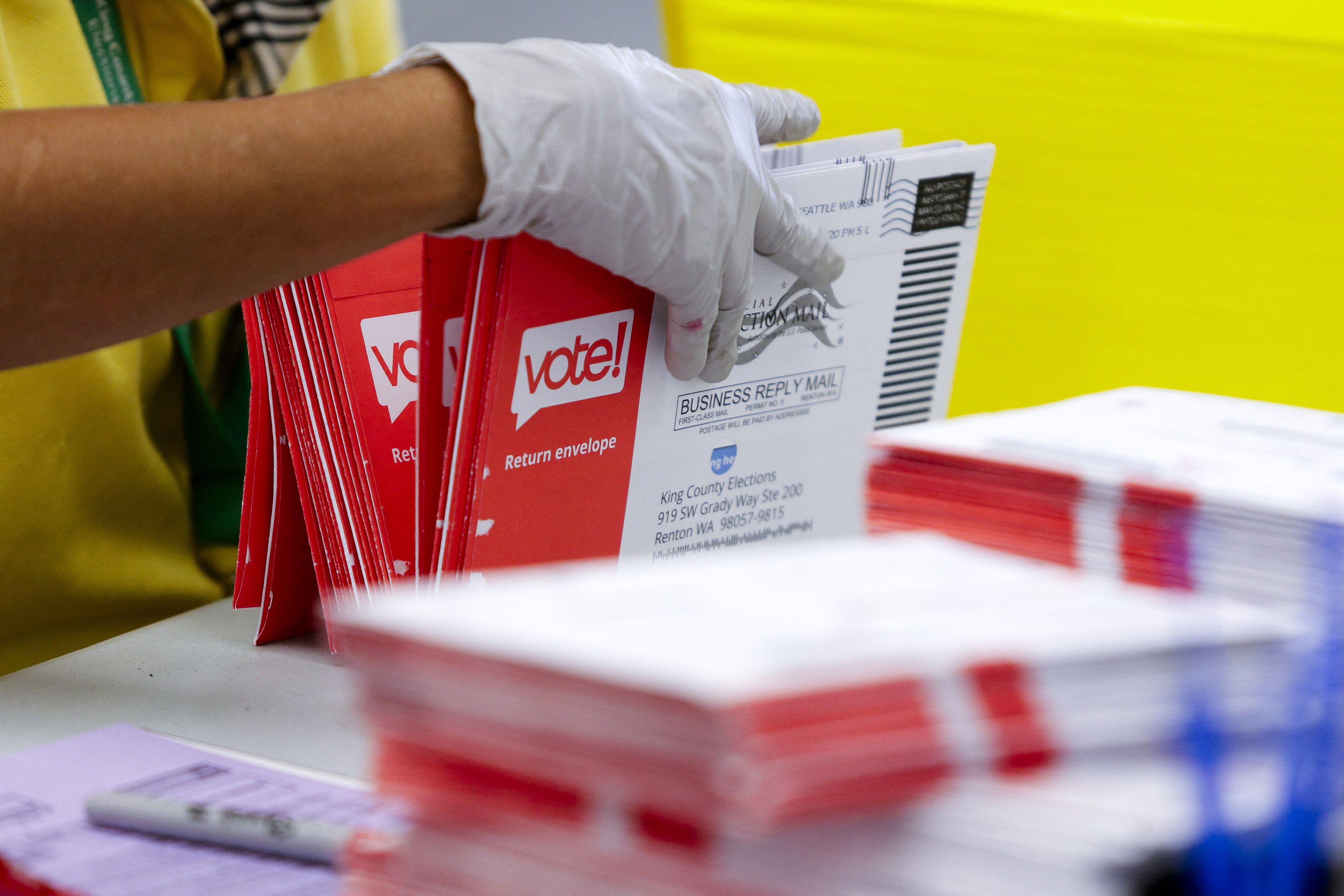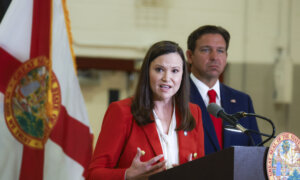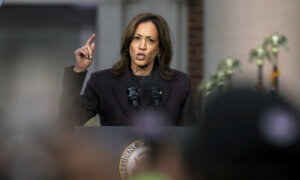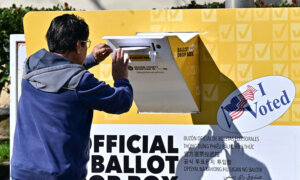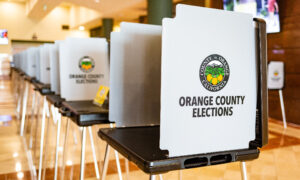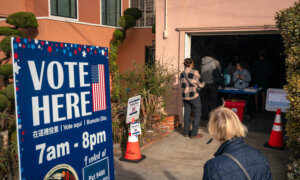TAMPA, Fla.—Election day in the United States has been hurricane-free for at least 164 years.
However, as eyes stay on the tropics in the final countdown to Nov. 5, the possibility of that streak ending remains alive, with Florida and Alabama standing ready to ensure voting can continue as expected.
“The Florida Department of State works closely with the county Supervisors of Elections, and if emergencies do arise, we take necessary steps to ensure that voters can vote,” Mark Ard, interim communications director for Florida’s Department of State, told The Epoch Times in an email.
“In the last two general election cycles, Florida has had a total of four severe hurricanes hit different parts of the state.
“Counties lost polling locations, voters were displaced from their homes, infrastructure was severely diminished—and the elections still went on.”
Florida’s state department is working with Supervisors of Elections in counties affected by Hurricane Helene and Hurricane Milton to ensure residents can vote, he said, and executive orders signed by Florida’s Gov. Ron DeSantis authorize the supervisors to make “appropriate accommodations.”
Those accommodations include extending the deadline for establishing early voting locations, consolidating polling locations, waiving required training of poll workers if there is a shortage, allowing state employees to serve as poll workers, and utilizing law enforcement, first responders, and even linemen, to ensure that vote-by-mail ballots are delivered.
The National Oceanic and Atmospheric Administration (NOAA) predicted 17 to 24 named storms would develop before the season ends on Nov. 30, with Hurricane Milton being the 13th of the year.
The National Hurricane Center is currently tracking two disturbances in the Caribbean.
NOAA’s records, which go back to 1861, indicate that no tropical storms or hurricanes have made landfall in the United States on or around election day.
The closest example appears to be in 1904.
An unnamed tropical storm made landfall in Destin, Florida, on Nov. 3, traveled across Georgia and South Carolina while weakening into a tropical depression, and moved across the Atlantic Ocean on Nov. 6.
Election day that year was on Nov. 8, and the storm did not appear to affect election results.
However, hurricanes and tropical storms were active in the Atlantic and Caribbean regions during several presidential election years, including 1888, 1896, 1932, 1956, 1972, 1984, and 2020.
Named storms also developed less than a week after an election day in 1912, 1916, 1924, 1948, 1964, 1980, 1996, and 2008.
Scores of hurricanes also have hit the United States less than a month before election day, and they have posed a challenge for voting in the past.
Voters across the southeastern United States—from Sarasota, Florida, to Asheville, North Carolina—are still reeling from hurricanes Helene and Milton.
No definitive forecast of an election-day hurricane has been announced, but do states have plans in place in case of one hitting on election day?
Ard told The Epoch Times that the Florida state department “will continue to follow up with supervisors throughout this time as their needs evolve.”
He also highlighted Florida Statue 252.365, which requires a disaster-preparedness plan that “must outline a comprehensive and effective program to ensure continuity of essential state functions under all circumstances.”
However, Ard said that information regarding continuity of operations within a disaster preparedness plan is “not subject to public disclosure.”
The Epoch Times reached out to the state departments of hurricane-prone Georgia, Alabama, Louisiana, Mississippi, and Texas, asking if they had plans to ensure election-day voting continued amid a hurricane.
Alabama was the only state to respond by publication time.
Laney Rawls, director of communications for Alabama’s Secretary of State Wes Allen, told The Epoch Times in an email: “Alabama does have emergency contingency plans, but for security reasons, those cannot be released.”
Meanwhile, early voting is underway across the country with more than 10 million votes cast as of Oct. 18, according to the University of Florida’s Election Lab’s early voter tracker.
That includes an estimated 1 million voters in Florida and nearly 900,000 in Georgia.
